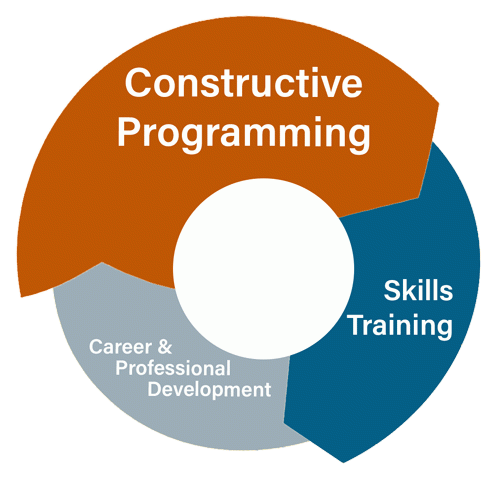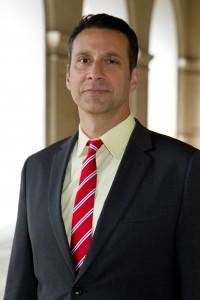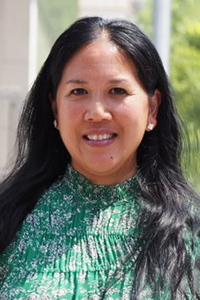L&D Director's Message
Find out what Learning & Development is and what we're doing for The University of Texas. Emil Kresl, Director of L&D, explains the difference between training and professional development, what a continuous learning organization is, and some of the programs and services are that we're focusing on.
We are advocates for working professionals continuously learning, and help create a structure of success for learning. We believe that continuous learning is a load-bearing pillar for well-being, and knowing how to learn is fundamental to running a healthy, innovative, and productive organization. Through knowledge sharing, online learning, and collaborations with our UT partners, we will foster a community of learning and establish UT as a first class learning organization for all working professionals.
What We Do
- Create original content and learning materials
- Host learning events and programs
- Consult with trainers across the University
- Run LinkedIn Learning for all students, staff, and faculty
- Run the Learning Management System, UTLearn, for all staff and faculty
- Produce instructional videos
- Promote workplace learning across the UT community
- Career development
Our Learning Philosophy
Based on the learning concepts of constructivism and triple-loop learning, UT L&D’s philosophy holds that it is essential that people construct their own knowledge and learn how to critically evaluate information. In that way, they are better equipped to understand the world around them and apply knowledge in ways that better society. For this reason, constructive programming is the primary element of our learning cycle.
Constructive programming promotes insight, teaches people to think critically, and apply new information, thereby improving all other learning experience in their professional and personal lives.

WE DEFINE CONSTRUCTIVE PROGRAMMING WITH THE FOLLOWING CRITERIA:
- Insightful content that provides context and depth of understanding to complex issues
- Introspective subjects that help learners with self-awareness
- Compels learners to think critically about difficult issues
- Helps learners better understand their own thinking and learning process
- Focuses on advanced human skills
Constructive programming lays the foundation for our workforce to be prepared to learn training material more effectively, and therefore be better prepared for their own professional development. People cannot grow in their career and profession if they do not yet have the hard skills required of that profession, and they will not truly master the hard skills if they have not been taught how to learn and think—an ability provided by constructive programming.
Our UT L&D Team:
Emil Kresl, Director of Learning & Development

Email: kresl@austin.utexas.edu
Phone: 512-471-0797
- MPAff, University of Texas at Austin
- MSCRP, University of Texas at Austin
- B.A., University of Wisconsin at Madison
For twenty years at The University of Texas, Emil has helped people at every level of the university better understand their own jobs and discover ways to make those jobs better. His work in academic departments, The Office of the Executive Vice President and Provost, and now Human Resources has provided him with a comprehensive knowledge of the systems, policies, and procedures of UT and higher education. In all of those UT departments Emil improved working conditions and increased efficiencies. He now reaches out to the rest of The University to do the same.
As the director of Learning & Development, Emil advocates for all working professionals at UT to continuously learn. In addition to coordinating courses lead by world class instructors, he also provides several talks for the the UT community throughout the year. Emil helps people realize their potential in part by adapting technical and complex professional concepts for use in everyday life, but also by raising their awareness of cultural and behavioral issues that influence their performance.
In addition to being a student of professional and personal development, he is a student of public policy and community planning, and has had various articles published on those topics. He is also the author of Self-leadership: The Art and Science of Control.
Frances Delacruz, Senior Program Manager

Email: frances.delacruz@austin.utexas.edu
Phone: 512-232-4537
- Bachelor of Science in Technical Management, DeVry University
- Masters in Project Management, Keller Graduate School of Management
Frances is a seasoned learning and development consultant with over 10 years of experience in staff development, instructional design, and program administration. She has extensive administrator level proficiency in learning management systems along with enterprise-wide strategic level contributor in systems implementation, program planning, and process improvement. Frances is highly committed in creating content, delivering learning programs, and leveraging learning solutions to support a culture of learning for working professionals.
Frances is also a member of the State Agency Coordinating Committee, Training & Development Subcommittee whose mission is to create training and development opportunities for all state employees resulting in quality programs that are cost effective for the State of Texas.
Community Learning Team
UT Learning & Development’s Susan Franzen leads a team that provides full-service learning and group facilitation tailored to your needs. As group learning specialists who serve as your partner and guide, they can integrate their content with your desired outcomes or help build something new, just for you.
On this Page
How Learning Relates to Crisis
In this 2 1/2-minute video, Emil Kresl, Director of L&D for The University of Texas at Austin talks about the relationship that learning has to crises and why it is critically important that organizations continuously learn.
For more on this topic, read Emil’s LinkedIn article, To Move Forward We Need to Teach People How to Think and Learn.
Learning & Development
Contact
For questions about or requests for services, contact L&D through our brief intake form.